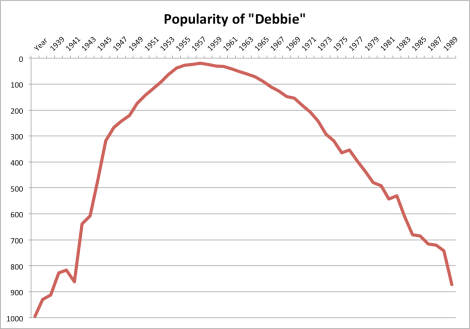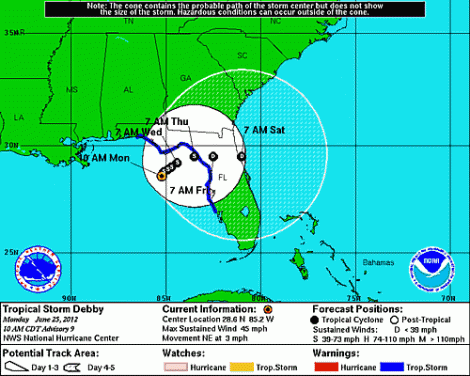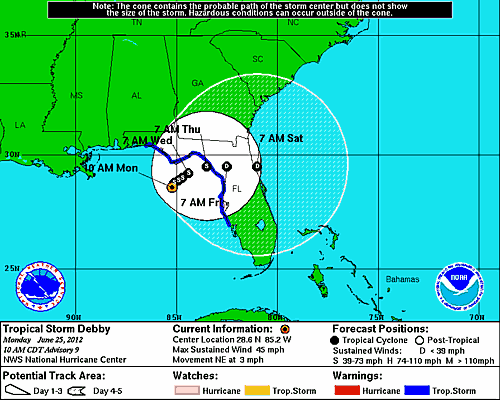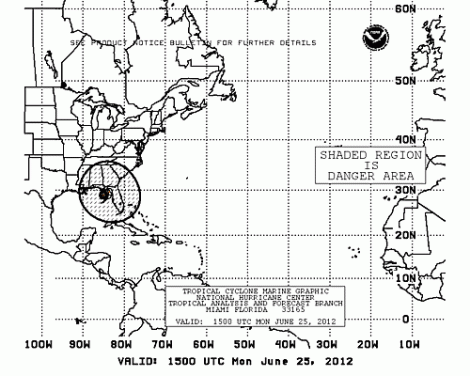“Debby” is not a popular name, having never been in the top 1,000 baby names in America over the past 100 years. Its variant spelling, “Debbie,” rose as high as America’s 20th most-popular in 1959, before falling off the charts in 1992.

There was a movie in the 1970s that didn’t help this trajectory.
It is, though, more popular as a name for storms. “Debby” has six times been used as a name for a tropical storm or hurricane; Debbie, four. In 1969, the most recent Hurricane Debbie was seeded with silver iodide in an experiment designed to test whether or not storms could be weakened. The tests were ultimately deemed failures.

Projected path of Debby.
Nor is “Debby” a particularly intimidating name, as befits 2012’s Tropical Storm Debby, currently stalled in the Gulf of Mexico near Florida. It’s noteworthy not for its expected impact, but for marking the first time since 1851 that four storms have formed before July. In the future, we’ll look back on this and say things like, “Only four?” and then laugh as we put hurricane protection over windows in Wichita.
Debby’s anticipated path — which the Weather Channel describes as “tricky” to predict — will see the storm making landfall in Florida later this week, with greatly reduced windspeeds but lots of rain. Part of the trickiness, as this animation shows, is that the path of the storm reversed direction entirely in the last 24 hours. Over the weekend, its projected path had it heading toward the Gulf Coast, leading to the evacuation of some Gulf oil platforms for safety.
Why Debby would hurt the same platforms that contributed to her birth is a question for psychologists. Happily for future storms, most oil production continues unabated.
Weather.com has live updates, most of which deal with how the storm might disrupt travel to Disney World. In short: It won’t, until 2024’s Category 9 Hurricane Debby — fueled by a massive increase in water temperatures and taking advantage of higher tides — completely obliterates the state of Florida.
Until then: business as usual.




